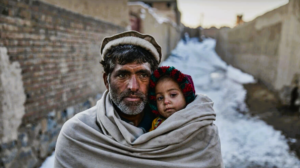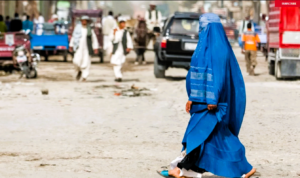“Asylum Criminalisation in Europe and Its Humanitarian Implications” – By Sarah Hammerl
A report commissioned by United Against Inhumanity (2019)
To access the report in PDF click here.
European policies and practices have created a climate of fear and hostility towards asylum seekers, warned a new report commissioned by United Against Inhumanity.
“The current policies shift security challenges to regions and countries that are already suffering from weak governance structures and/or conflicts while pushing asylum seekers to take more dangerous routes,” said report author Sarah Hammerl, an independent researcher.
According to the report, “asylum Criminalization in Europe and its Humanitarian Implications”, short-sighted politicians and fear-mongering demagogues have together created a dominant and pernicious narrative linking asylum seekers to social disorder and criminal activity in Europe.
Thousands of asylum seekers have drowned in the Mediterranean after they failed to reach safety because of increasing governmental restrictions on search and rescue operations undertaken by several civil society organizations, fishermen, and volunteers. European asylum policies have effectively criminalised individuals seeking refuge in Europe with the use of mass detention, deportations or prevention from landing even if staying at sea could mean death.
In addition to asylum seekers, European countries have also increasingly criminalized people and organizations trying to help them when they are stranded on the high seas or cast ashore. “By the end of 2018, maritime search and rescue (SAR) activities in the Mediterranean had tremendously suffered from the criminalisation of humanitarian assistance to asylum seekers,” the report stated. This practice has harmed humanitarian workers and citizen volunteers, many of whom were defamed and some charged with felonies.
Asylum and migration policies in Europe are largely broken and need to be fixed in such a way that takes into consideration how crises and conflicts have hit Africa and West Asia in the past few years leading to these fresh waves of refugees. Though Germany has absorbed a relatively large number of these refugees, most of these fleeing millions of children, women and men ended up in countries neighbouring Syria, South Sudan, and other conflict countries – not Europe.
European countries have turned this global human challenge into a mere “security” problem, thus shirking international and national commitments. They work with unsavoury governments who torture and detain people on the move to prevent them from reaching safety.
“While European governments shirked their responsibility to protect human beings fleeing from violence, thousands of European citizens stepped up and worked tirelessly to save the lives of asylum seekers who had spent hours in marooned rickety boats or floating with buoys in cold waters, much closer to death than to the safety they had risked their lives to reach,” Hammerl said. They provided food, offered clothing, housing and transportation as well as medical and psychological care. All such activities now carry a vastly increased risk of prosecution.
The report concludes that sustained international advocacy and campaigning, based on the exchange of information and collaboration with existing and emerging initiatives can lead to stronger public engagement and to political change that is essential to avoiding further harm to asylum seekers and the criminalisation of humanitarian action. A new and more consistent policy that can adequately address valid concerns will certainly better serve European interests and be faithful to its values and international commitments.
| United Against Inhumanity is an emerging international movement of individuals, civil society groups and non-governmental organizations concerned about the routine violations of the rights of everyone endangered by conflict or in need of refuge. Through mobilizing our collective commitment and efforts, UAI works to challenge the inhumanity that destroys lives and tears apart societies. |
To access the report in PDF click here.











